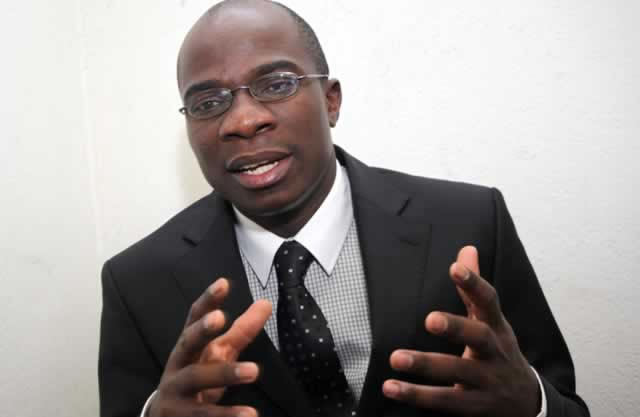Zim to host crucial Africa climate conference . . . as CC proves nightmare come true

 Jeffrey Gogo Climate Story
Jeffrey Gogo Climate Story
HUMANS tend to ascribe titles to certain things or phenomena that are indicative of their own intellectual and physical limitations to things that dwarf the understanding of this know-it-all, all conquering species.
Objects observed in the sky, sometimes flying at supersonic speeds, objects that have dumbfounded scientists, and thought to be carrying a superior race from a different planet, have been fittingly called Unidentified Flying Objects (UFOs).
Then we have natural disasters like the tsunami, earthquake and others. Over the years, scientists have studied and improved their understanding of the phenomena, but accurate predictions of their occurrence are never absolute, much less their prevention.
Overall, humanity has just failed to cope with such disasters, which have been referred to as acts of God or acts of nature. Atheists call them acts of God, too. It is a conundrum of great proportions, the ability to identify events that are responsible for the endless suffering of people in their millions, but powerless to avert the chaos.
Climate change is a nightmare come true for Africa. It has devastated agriculture, the continent’s economic mainstay, raptured through human settlements, resulted in increased water scarcity, hunger, poverty and malnutrition. The list is long.
With Paris on the horizon, African climate experts will meet for a crucial climate conference in the Victoria Falls at the end of this month to map out measures to protect and enhance Africa’s development against extreme assaults from the so-called acts of nature. This will be the fifth meeting of the Climate Change and Development Africa (CCDA), an African Union initiative seeking to mainstream climate information into national policies for a resilient Africa across major economic sectors.
Mr Elisha Moyo, principal climate change researcher in the Ministry of Environment, Water and Climate, said Zimbabwe was excited to host the event, which will reflect on the effectiveness of UN mechanisms to cut carbon emissions.
“Issues of greenhouse gas stabilisation and the implications of global warming for Africa’s sustainable development will be addressed through a review and analysis of the interactions between climate sciences and policy in the global climate governance framework,” said Mr Moyo.
Since the multilateral climate talks began 25 years ago, global emissions have escalated, rising by more than 40 percent since 2010 compared to 1990 levels. Many agree the talk’s incremental nature has delayed progress and expanded climate risks, particularly in vulnerable Africa.
There is a genuine feeling among Africans the UN Framework Convention on Climate Change has failed the continent, but that is not to suggest a disbanding of the system altogether.
Interesting times
The Victoria Falls meeting is happening at a very interesting time in the history of global climate change negotiations: just four weeks ahead of the crunch Paris climate summit where a new climate deal will be sealed.
Rightly, it is themed around sustainable development in Africa in the context of the anticipated Paris climate agreement, one of the greatest complexities in economics and in the climate sector today: economic growth in a low carbon environment.
Organisers of the conference hope to deliver an outcome that will help inform the shape and structure of the Paris agreement, for Africa’s benefit.
“The conference will reflect on the African climate change experiences under the Kyoto Protocol, and seek to inform the emerging Paris framework,” said Mr Moyo.
“The reflections will also set the basis for developing climate sensitive development policies and processes in Africa in the post Paris period.”
Just how much the developed world will consider Africa’s input remains a matter of conjecture.
It is now widely recognised that climate change, food production, poverty and hunger are interconnected, not only through effects of climate change on agriculture and incomes, but also through changes in agriculture and economic practice that affect climate change. Maintaining efficient and productive agriculture systems play a key role in adapting to and mitigating climate change.
Acts of nature narrative outdated
The climate challenges that Africa grapples with are never a result of involuntary acts that nature periodically spews out onto humanity because it is in nature’s nature to do so, but emanate from the continuous interference of the climate system by humans since the industrial revolution.
This revolution did not happen in Africa, although the continent disproportionately faces the greatest risks from climate change, risks caused by someone else, the West.
Today, Africa’s greenhouse gases emissions, the major catalyst for global warming and climate change, account for roughly 5 percent of the global total. China, the US, the European Union, Russia and Japan make up over 70 percent of world emissions.
On the road to Paris, industrialised countries should, therefore, recognise their historical responsibilities, and their current and future obligations, to providing leadership that delivers an effective and equitable global climate agreement. It is not enough to continue deflecting blame to the forces of nature, a rigidly ulterior plan to delaying climate action.
Without sufficient action, rising environmental, social and economic risks posed by climate change will expand, with massive financial implications for Africa adaptation.
The UN Environment Programme expects the costs of climate change adaptation on the continent to reach $50 billion per year by 2050, 2,5 percent of Africa’s Gross Domestic Product, even under a 2 degrees Celsius warmer world. The CCDA conference should produce comprehensive strategies that feed into the broader, long-term African climate goals, enforceable at Paris.
The CCDA convenes researchers, policy makers and development practitioners, climate scientists, user groups and other stakeholders to deliberate contemporary climate change issues and contribute towards the identification and elaboration of appropriate responses.
God is faithful.








Comments